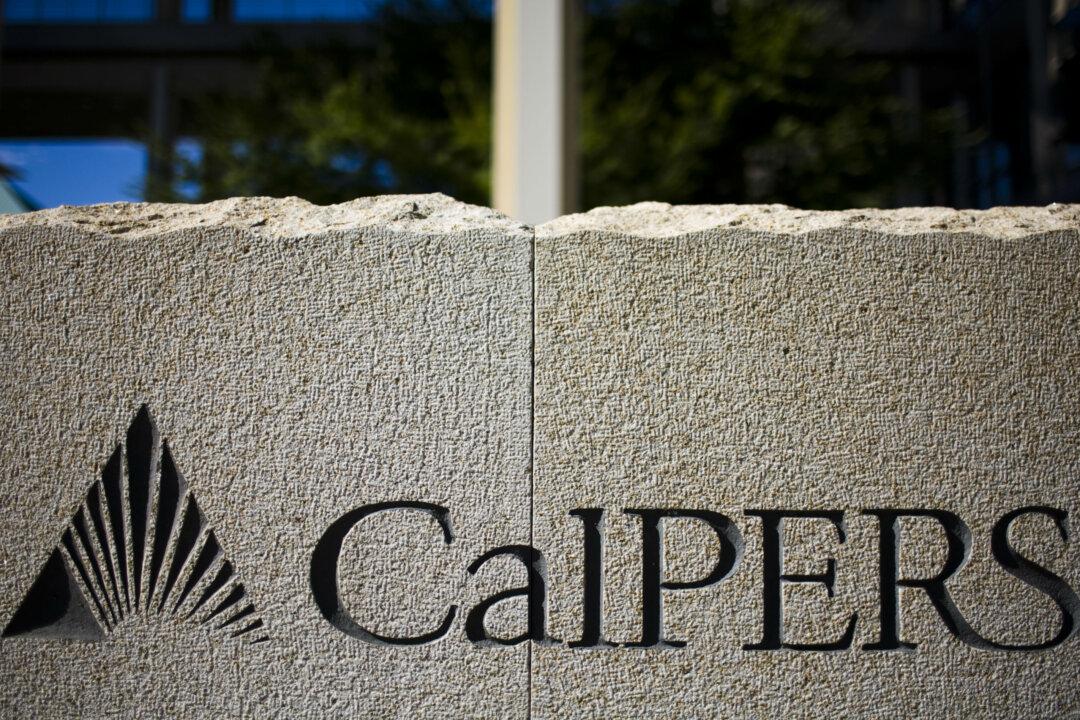
A sign stands in front of California Public Employees' Retirement System building July 21, 2009 in Sacramento, California. Max Whittaker/Getty Images
Commentary
The novel coronavirus pandemic has hastened U.S. companies’ efforts to “decouple” their
supply chains and operations from China.
